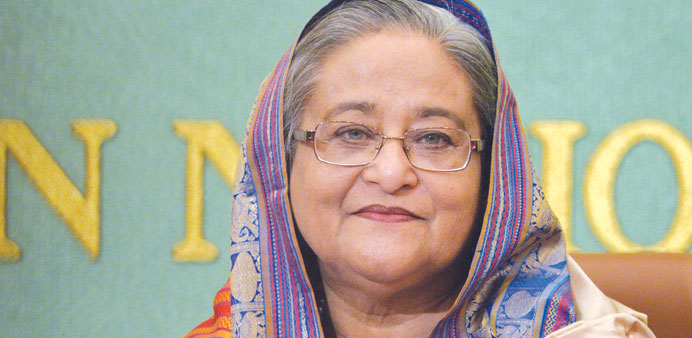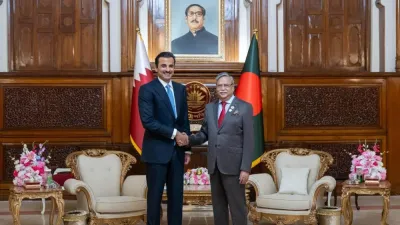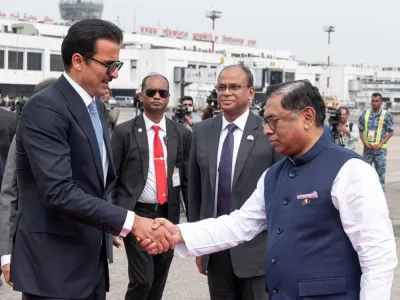|
Bangladesh Prime Minister Sheikh Hasina has said the main opposition BNP would have to pay for its “political mistake” of boycotting the January 5 general elections. |
In an interview with the BBC Bangla during her last week’s London visit, she said neither the presence nor the absence of the BNP and its ally Jamaat-e-Islami in parliament would affect anything.
An audiotape of the interview has been published on the BBC Bangla website.
When asked why there was no apparent initiative to sit for talks with the BNP over the next polls, Hasina said it was unclear to her as to why everyone was so bothered about the dialogue issue.
“I took initiative for talks as the prime minister ... I myself had made a telephone call and everyone knows the rest,” she said.
The BNP and its allies stayed away from the 10th national polls demanding supervision by a non-party neutral caretaker government, a provision scrapped through the 15th constitutional amendment.
Hasina’s government stuck to its decision to supervise the polls citing constitutional clause.
The prime minister had called BNP chief Khaleda Zia to sit for talks before the elections but the latter turned down the offer citing her party’s pre-announced shutdown programme. “Who is to be held liable if a party makes a political mistake?” she asked in the interview.
Awami League president Hasina alleged the BNP boycotted the polls as its key ally Jamaat could not participate in it.
The High Court last year cancelled registration of Jamaat, which opposed Bangladesh’s independence and many of whose leaders are now facing trials or have been convicted by special war crimes tribunals.
“...The BNP won’t contest polls without the Jamaat,” the prime minister claimed.
She said the January 5 polls were organised as per constitutional obligation but the BNP had chosen to boycott it.
Hasina brushed off chances of a dialogue with the BNP over the next polls, saying there cannot be talks with a party which “kill people to save Jamaat leaders” from being prosecuted on war crimes charges.
Hasina and her arch political rival Khaleda, leading two political dynasties, have alternated as Bangladesh’s prime minister since the early 1990s.
The Awami League chief rejected allegations that the Jatiya Party could not become an “effective” opposition party.
“Certainly they (the JP) are the opposition party,” Hasina said.
Defending JP’s inclusion in the government, she said she wanted to work for Bangladesh’s development with everyone.
The prime minister sidestepped a question on her government’s stance on banning the Jamaat. She said it was a sub-judice matter and that there was no option to take steps until a final verdict was announced.
“It (Jamaat) is being tried as a [suspected] war criminal. Our attitude towards them is same as that of whole Bangladesh,” she said, adding trail against the Jamaat was the people’s demand.
The prime minister said there was no change in her government’s commitment towards trying the suspected war criminals.



